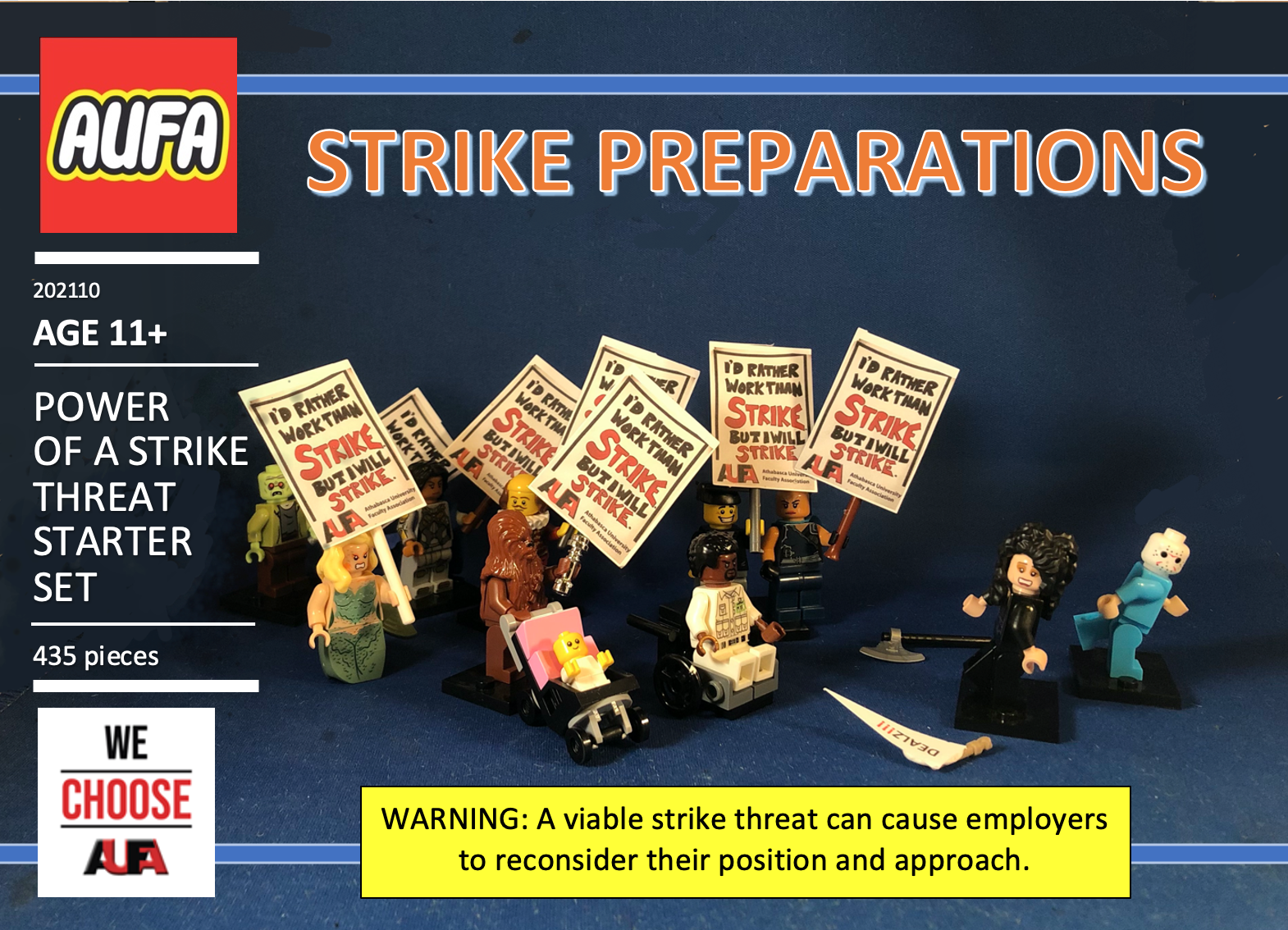AUPE successfully resists rollback mandate
AUPE and the Government of Alberta recently concluded mediation for a new contract for government workers. This settlement affects most workers employed directly by the government. It does not affect AUPE members employed by AU, other PSEs, or AUPE health care workers.
AUPE is recommending its members accept the new contract. The contract represents the culmination of a long and drawn out negotiation that saw AUPE successfully resist virtually every concession that the government initially demanded, including wage rollbacks, and it instead features modest salary gains for AUPE members. This blog provides some analysis of what this deal means for AUFA.
Government’s Opening Position
Going into bargaining, the government wanted a 4% wage rollback followed by several years of wage freezes. The government also sought further wage reductions in some specific job classifications as well as reductions in shift differentials, weekend premiums, health spending accounts, benefit costs, paid holidays, and overtime. Finally, the government sought to eliminate language about job security.
These proposed rollbacks were consistent with what government agencies, boards, and commissions (ABCs) have been seeking, presumably in response to secret government mandates. In theory, the government could have legislated these rollbacks (as was suggested by the MacKinnon panel in 2019) if it wanted to risk a court fight.
Recommended Agreement
Last week, AUPE announced that it had reached a mediated settlement with the government. The four-year deal (ending March 31, 2024) would have the government withdraw virtually all of its rollback demands (one exception is noted below) and offer some modest gains to government workers. These include:
A 1.25% salary increase on January 1, 2023 and an additional 1.5% increase on September 1, 2023. Depending on economic conditions, an additional 0.5% increase is possible in September 2023.
Job security for permanent staff until December 31, 2022.
An 8% wage bump for some staff (mostly policing) whose jobs have expanded retro to April 1, 2021.
The one rollback is to the grids for three classifications. This rollback will affect new hires only. AUPE frames this as a win, but with job turnover of ~10% per annum, this is really more of a delayed loss. Significantly, this contract also pushes out the next round of bargaining until after the next expected election date.
Analysis
The agreement between AUPE and the government holds several lessons for AUFA. First, the agreement shows that government mandates are malleable. External factors can affect what the true bottom-line is for an employer. In this case, the government’s dismal polling amongst Alberta voters, together with its limited capacity to engage in additional conflicts likely contributed to the government walking away from rollback demands and agreeing to modest gains for AUPE members.
Internal factors can also affect the true bottom line, such as the willingness of a bargaining unit to strike and the negative impact of such a strike on the employer. While AUPE spent a lot of effort building strike capacity in this bargaining unit, it was not at all clear that AUPE could mount an effective strike (i.e., one where the operational disruption and political harm caused by the strike outweighed the cost savings and long-term gain for the government). Nevertheless, these preparations likely contributed to the government making a quiet about-face.
The second lesson is that what unions get (and can keep) reflects what they can win. AUPE managed to fend off almost every rollback the employer wanted and even made modest gains, which is laudable. That said, these gains are very modest. A wage increase of 2.75% (or maybe 3.25%) over four years (during which time inflation will likely run 8%) represents a net loss to their members’ purchasing power.
This may well have been the best deal AUPE could get in the circumstances. Other unions (or AUPE bargaining units) with more powerful strike threats (i.e., they are more likely to go out or, if they go out, the cost for the employer will be greater) may be able to get an even better deal for their members.
For AUFA, this means we need to have a credible strike threat if we want to avoid rollbacks and make gains. More bluntly, AUFA members need to be prepared to strike. And the operational, financial, and reputational consequences of such a strike need to be serious enough that, in the end, the employer would prefer to improve our wages and working conditions than weather a strike.
Attaching profound consequences to change the employer’s behaviour was how AUFA prevented rollbacks during the 2018 round of bargaining. And it was how AUFA prevented AU from de-designating two-thirds of the members of the unit in 2020. Indeed, AU’s interest in widespread de-designation of AUFA can be usefully understood as an effort to undermine the power of AUFA’s strike threat.
Conversely, if AUFA cannot mount a credible strike threat, then there is basically no way for AUFA members to avoid accepting whatever rollbacks the employer proposes. Some AUFA members have expressed discomfort with the potential negative impact that a work stoppage will have on students and on the programs that AUFA members have spent years developing. The employer knows about this very understandable discomfort among AUFA members and it is hoping that these concerns will sap AUFA members’ willingness to strike.
The question for AUFA members is at what point do we stop sacrificing our wages and working conditions to keep the peace and instead seek well-earned and warranted improvements?
Bob Barnetson, Chair
AUFA Job Action Committee

